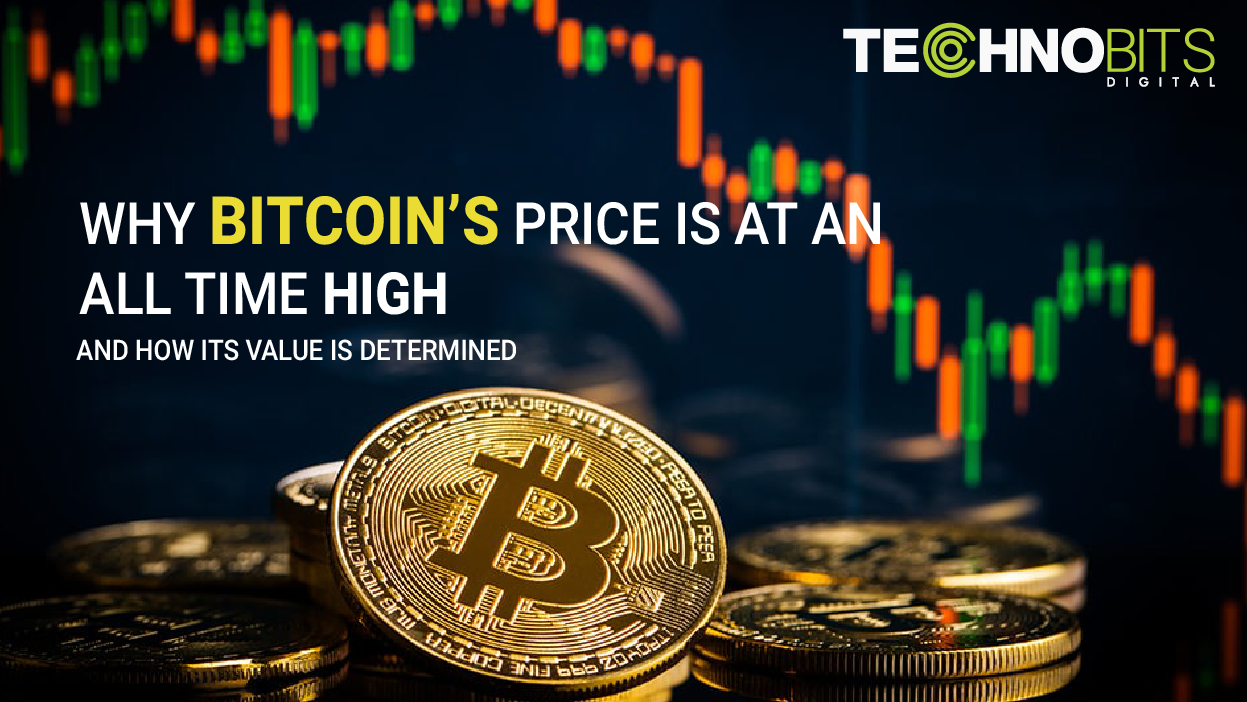Blog Detail
Here is why the Bitcoin is price is booming and why its popular
the Bitcoin’s price is booming
Jan 13 2021

Bitcoin stays to upsurge, doubling up in value in under a month to reach over $40 000 on Thursday – more than quadrupling in the past year, according to Bloomberg.
It was first launched in 2009 as a digital currency, now, it’s used almost entirely as a kind of “digital gold”. That is to say, a rare digital asset.
In response to the risk 4of economic collapse due to Covid, governments around the world have flooded global markets with money created by central banks, in order to boost spending and help save the economy.
But increasing the provision of cash erodes its worth and leads people to look for inflation-resistant assets to carry.
What is Bitcoin?
Bitcoin is the world’s largest cryptocurrency generated through marketplace capitalization.
A limit set on a circulating supply is 18,590,300 bitcoins and a maximum of 21,000,000.
This boundary is hard-coded into the Bitcoin protocol and can’t be changed. By creating false scarcity, it ensures the digital money increases in value over time.
Moreover, Bitcoin has a fixed supply that can’t be inflated by political decisions.
Bitcoin network draws on the work of cryptographers and computer scientists to exist as a blockchain-based digital currency is the most revolutionary aspect of bitcoins.
A functional and decentralized digital currency
Bitcoin is “decentralized”.
And it does this through the Bitcoin “miners”. This is anyone who runs software to authenticate Bitcoin transactions on the blockchain.
In turn, they are rewarded with bitcoins, the reward paid to miners splits every four years.
Therefore, massive up and down in price typically reflect changing demand conditions.
Why does Bitcoin matter?
- It’s a “safe” asset
In the face of global uncertainty, shopping for bitcoins could be a manner for individuals to diversify their assets. Its value is often compared to that of another go-to plus that shines in times of trouble: gold.
Amid the worldwide pandemic, an unconventional U.S. presidential relinquishment and government power shift the world over, it’s possible more individuals view gold and Bitcoin as higher alternatives to dollars.
- It ties into privacy-oriented ideologies
Bitcoin (and cryptocurrency in general) isn't politically and ideologically neutral. it had been born of the web era, one overrun with grave issues for privacy.
Bitcoin’s intellectual and philosophic origins are within the “cypherpunk” movement of the 1990s and early 2000s.
Records of online forums show it had been advocated for as an anonymous digital currency that allowed individuals to move online while not being tracked by governments or firms, giving another for anyone UN agency distrusts the Federal central banking industry.
Perhaps the public rise of digital surveillance in response to the Covid pandemic has more stoked fears regarding online privacy and security — once more piquing the public’s interest in Bitcoin’s potential.
WhyisBitcoinbooming?
Bitcoin’s recent boom in price comes all the way down to a mixture of 3 factors: ideology, social sentiment, and hope.
Bitcoin is in an upward market trend, conjointly referred to as “bull market” territory.
It was designed to extend at price over time through the principles Nakamoto wrote into its code — that Bitcoin’s most outspoken advocates referred to as “maximalists”.
Imagining new futures
And localized blockchain-based networks don’t simply alter digital cash. like standard smartphone apps, software system developers around the world are building localized applications (DApps) on the prime of Bitcoin, and different blockchain protocols.
They have introduced different cryptocurrencies, like Ethereum, that are open platforms for the general public.
Other DApps embody localized monetary (Defi) tools for prediction markets, cryptocurrency borrowing, and disposal, finance, and crowd-funding.
Nakamoto’s audacious experiment in the digital currency is functioning as meant.
TAGS
India +91 97265 89144, Dubai +971 544149632.
We truly care about our users and our product.






